
Spektr and Phaser: the legendary sound processors (+ Spektr manual)
shlepakoff, 13.02.2011, 04:10
Spektr -3 (Russian for “spectrum”)
original article by ZeLiBoBBer, Mikhail Prokofiev here: [link]
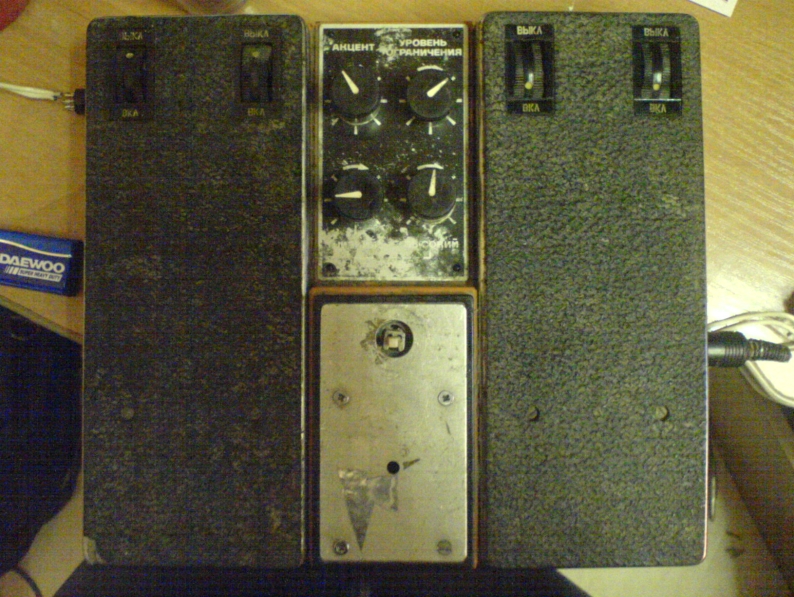
You are looking at a Soviet stompbox that combined fuzz, wah, and envelope filter effects. The two standard pedal shells are the same as the ones used on EQ, phaser, and some other boxes. There is a rectangular prism-shaped shell added in the middle. The elements are welded together. The device has two foot pedals: one to operate the wah effect, another one for volume control that works even when the effects are turned off. Looks like the pedal’s handy previous owner modified the box slightly. In its current state, only the fuzz is in working condition. The on/off buttons for the effects are inconveniently positioned directly under the respective foot pedals. Control knobs: accent (out of order), gain, and a 2-band EQ (hi and low freq). Naturally, the pots are real creaky. Nothing too exciting inside the box except maybe for the fact that the pedals are driven by the same pot wipers; if you've used this box, you may have gotten annoyed a bunch of times by the cracking noise that both of the foot pedals produce plenty of. Not unexpectedly, the device is powered up by a standard 9V battery. Some handyman added an external power connector. All in all, a pretty mean and dirty overdrive.
Phaser-2
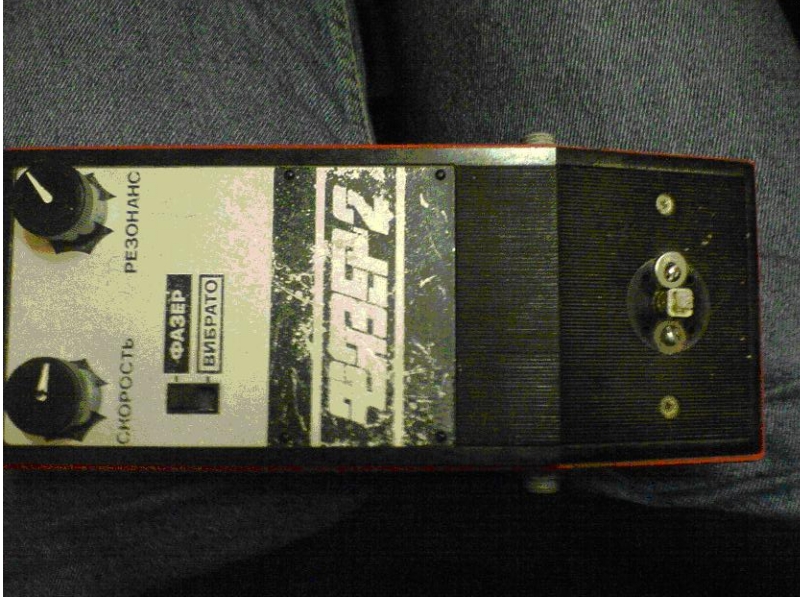
Same standard shell. Same brittle pushbutton that breaks so easily as a result of clumsy foot action. Connectors: “in”, “out”, and “power” – all DIN-5's. How many of these boxes must have been wrecked when the “in” was mistaken for “power”, god only knows. There are two onboard effects, phaser and tremolo. Controls: resonance (effect depth) and speed. Phaser/tremolo switch. A fairly decent sound. Fans of disco and reggae should enjoy it.
Spektr-3
Phaser-2
Samples were recorded into a soundcard line-in, played on Ashtone AE-500 with original pickups, on a bridge humbucker. The Spektr-3 manual and diagrams courtesy of Mikhail Prokofiev.
Translated by Ilya Shlepakov, 2011 ©
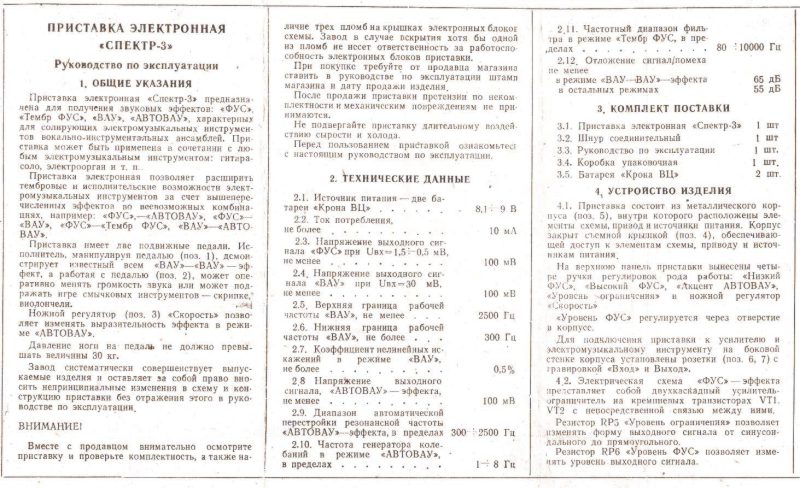
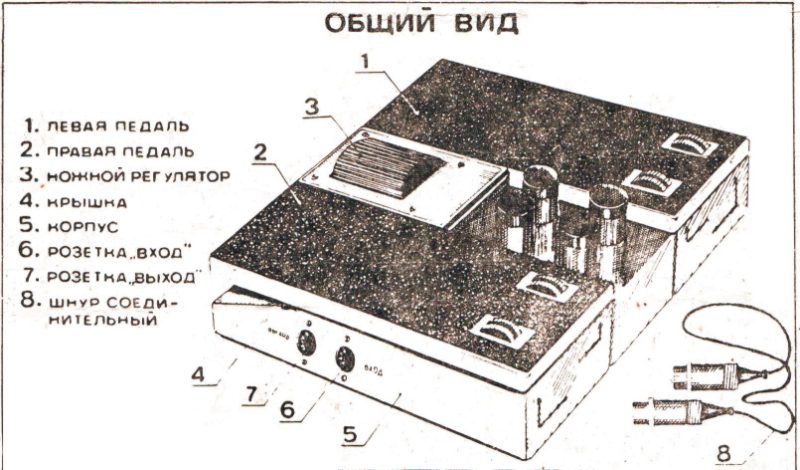
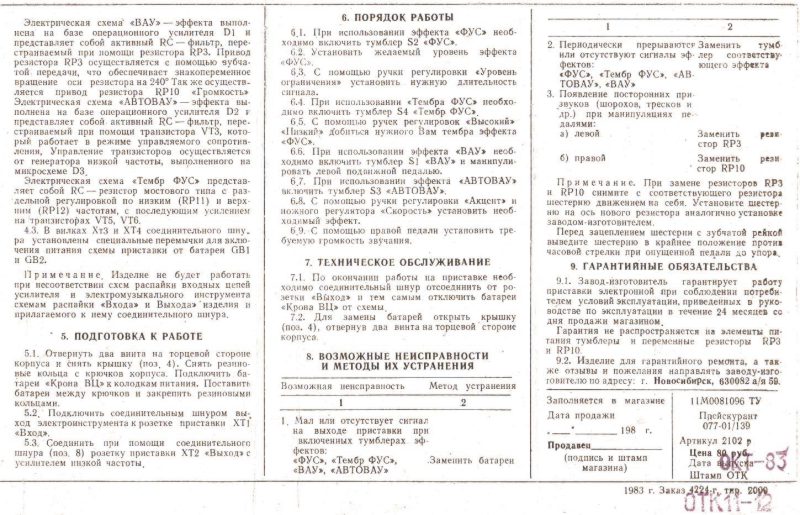
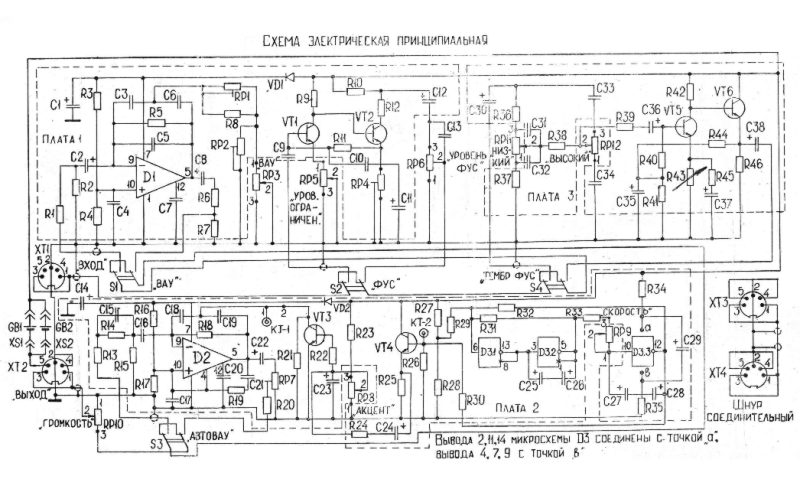
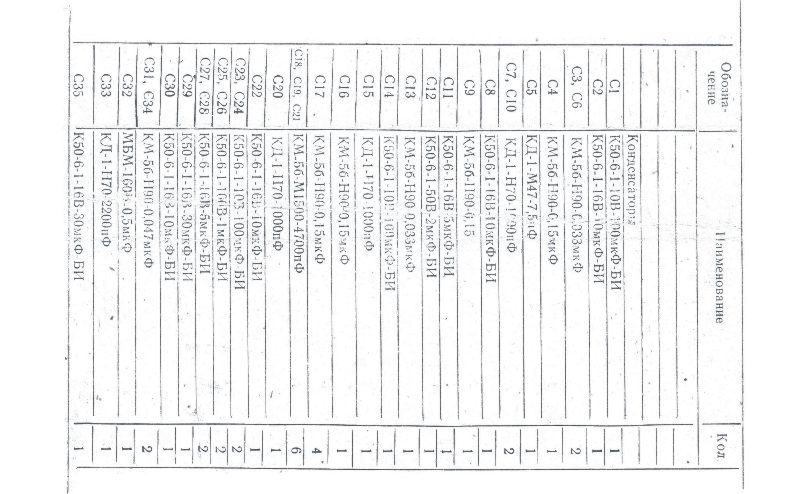
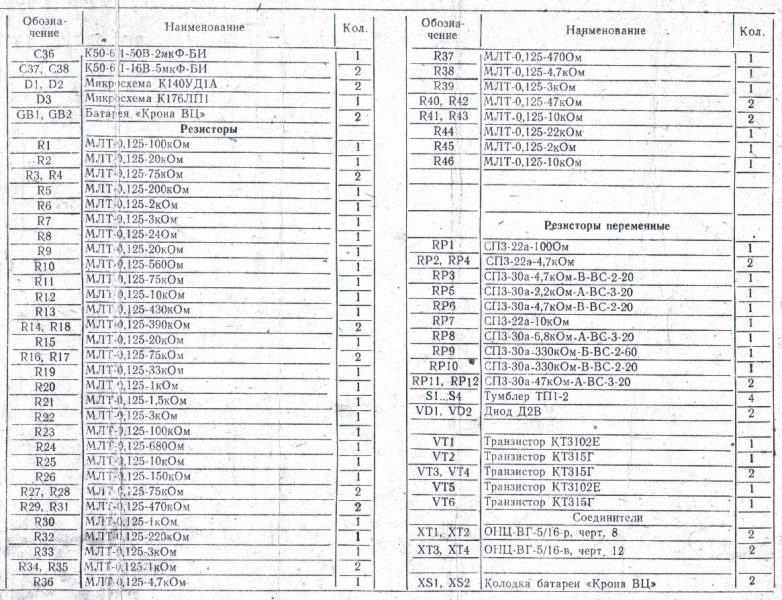
shlepakoff, 13.02.2011, 04:10
Spektr -3 (Russian for “spectrum”)
original article by ZeLiBoBBer, Mikhail Prokofiev here: [link]

You are looking at a Soviet stompbox that combined fuzz, wah, and envelope filter effects. The two standard pedal shells are the same as the ones used on EQ, phaser, and some other boxes. There is a rectangular prism-shaped shell added in the middle. The elements are welded together. The device has two foot pedals: one to operate the wah effect, another one for volume control that works even when the effects are turned off. Looks like the pedal’s handy previous owner modified the box slightly. In its current state, only the fuzz is in working condition. The on/off buttons for the effects are inconveniently positioned directly under the respective foot pedals. Control knobs: accent (out of order), gain, and a 2-band EQ (hi and low freq). Naturally, the pots are real creaky. Nothing too exciting inside the box except maybe for the fact that the pedals are driven by the same pot wipers; if you've used this box, you may have gotten annoyed a bunch of times by the cracking noise that both of the foot pedals produce plenty of. Not unexpectedly, the device is powered up by a standard 9V battery. Some handyman added an external power connector. All in all, a pretty mean and dirty overdrive.
Phaser-2

Same standard shell. Same brittle pushbutton that breaks so easily as a result of clumsy foot action. Connectors: “in”, “out”, and “power” – all DIN-5's. How many of these boxes must have been wrecked when the “in” was mistaken for “power”, god only knows. There are two onboard effects, phaser and tremolo. Controls: resonance (effect depth) and speed. Phaser/tremolo switch. A fairly decent sound. Fans of disco and reggae should enjoy it.
Spektr-3
Phaser-2
Samples were recorded into a soundcard line-in, played on Ashtone AE-500 with original pickups, on a bridge humbucker. The Spektr-3 manual and diagrams courtesy of Mikhail Prokofiev.
Translated by Ilya Shlepakov, 2011 ©





